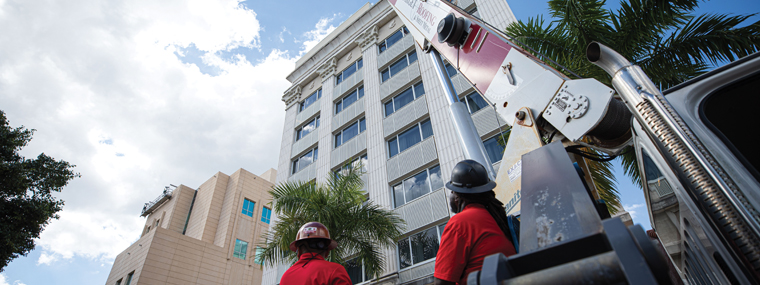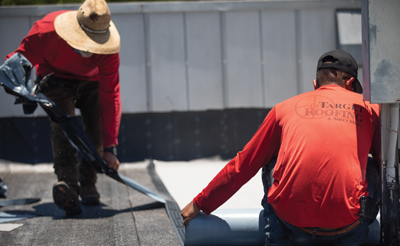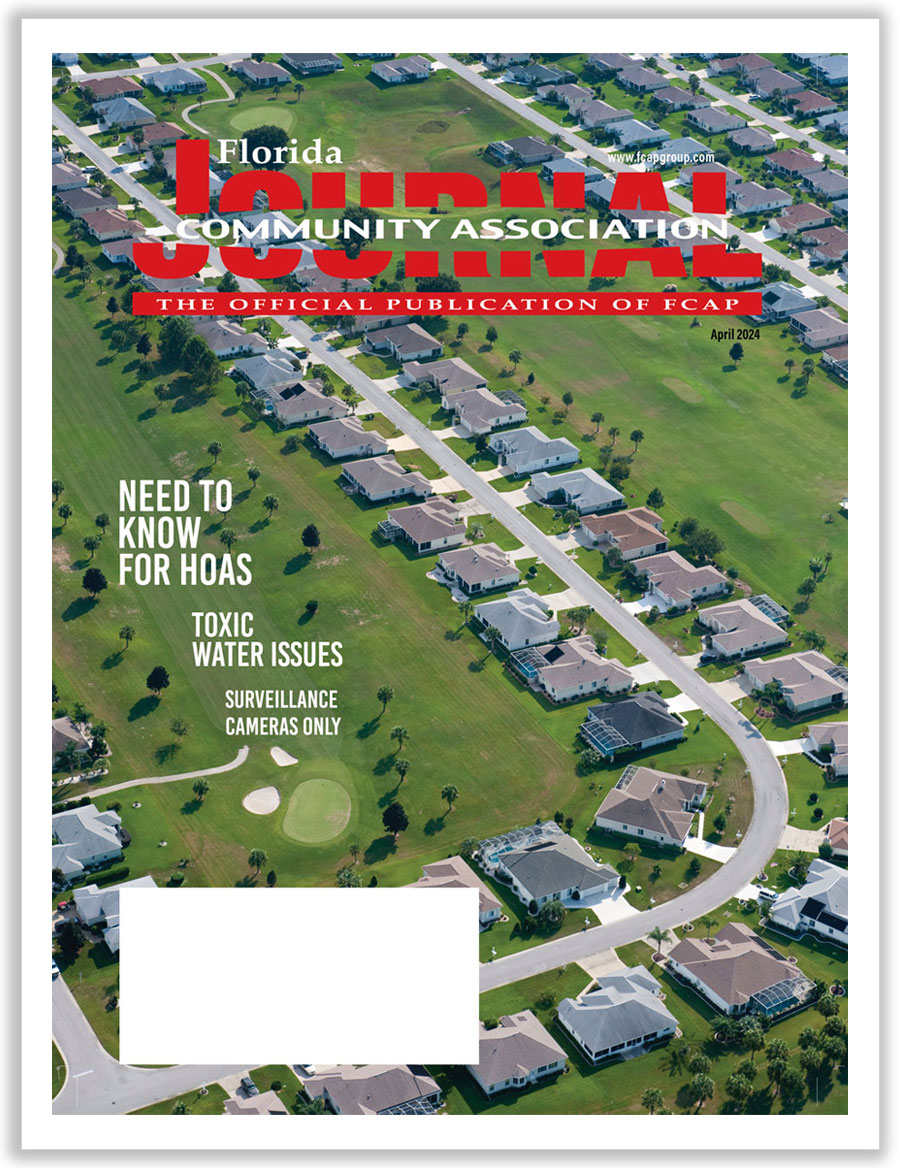
Roof Maintenance Isn’t a Cost; It’s an Investment
By Casey Crowther / Published September 2020

In oil change costs about $50. A new engine for your car can cost 100 times as much. Replacing an air filter in your home costs about $5. Purchasing a completely new A/C system can set you back $5,000 or more. Routine maintenance isn’t a cost. It’s an investment.
Property owners and property managers recognize the benefits of routine maintenance, like changing batteries in smoke alarms, cleaning kitchen vents, trimming trees, skimming the pool, and treating for pests. A little expenditure or time upfront ultimately protects your assets down the road. What many don’t realize, though, is that roofs need preventive maintenance, too.
 All year, your roof takes a pounding from extreme heat, dangerous UV rays, and torrential downpours. Water can permeate your roof’s watertight seal and quickly deteriorate roofing materials. That decay can cause leaks that damage insulation and drywall, foster mold growth, create electrical hazards, and even provide a breeding ground for pests and rodents.
All year, your roof takes a pounding from extreme heat, dangerous UV rays, and torrential downpours. Water can permeate your roof’s watertight seal and quickly deteriorate roofing materials. That decay can cause leaks that damage insulation and drywall, foster mold growth, create electrical hazards, and even provide a breeding ground for pests and rodents.
Each of those potential outcomes from a leaky roof can devastate a budget because reactive maintenance is always more expensive than proactive maintenance.
An annual maintenance plan offers the best solution to protect property, assets, and people. The number one reason to secure a maintenance plan is that it includes guaranteed inspections. Experienced inspectors will look for displaced flashing, pooled water, cracked or chipped tiles, faulty adhesives, missing nails, granule loss, and clogged gutters or drains. Little problems can quickly become big problems. Contractors will provide a comprehensive evaluation report that includes inspection photos, lists of recommended repairs and maintenance services, and a general idea of your roof’s remaining lifespan.
[adrotate group=”1″]
Roof inspections are comparable to visiting a physician for an annual checkup. You may be responsible for the co-pay and fees for diagnostic testing, but it’s money well spent if your physician detects a potential health problem early enough; and if you receive a clean bill of health, that’s great, too!
 Maintenance plans often include the cleaning of gutters and drains, which are critically important to quickly drain water from a roof, as well as debris removal. Maintenance contracts can also include varied levels of repairs, like replacing tattered TPO, broken tiles, and torn shingles.
Maintenance plans often include the cleaning of gutters and drains, which are critically important to quickly drain water from a roof, as well as debris removal. Maintenance contracts can also include varied levels of repairs, like replacing tattered TPO, broken tiles, and torn shingles.
While maintenance plans offer protection for your roof, they also offer protection for your budget. In addition to some repairs being covered or discounts on services, most manufacturer warranties contain a clause stating that property owners must have proof of regular maintenance and inspections to remain valid. That means if you fail to schedule annual inspections and a major problem develops, you might be on the hook financially to pay for repairs or a replacement that could cost tens or even hundreds of thousands of dollars.
Signing a service contract is like having a roofer on retainer, so hiring the right roofing contractor is key. Look for a contractor that has the following qualifications:
- Local: Searching online for a contractor often turns up companies that don’t have a physical presence in your geographic region. Instead, those companies will hire subcontractors to complete a job on their behalf. If they don’t have a local telephone number, local address, and local employees, then they aren’t local.
- Certified: Roofing companies must register with the state of Florida as a roofing contractor. However, they aren’t required to be members of the National Roofing Contractors Association or pursue voluntary certifications or credentials signifying advanced abilities and capabilities. A contractor’s awards shelf often provides evidence of certifications.
- Experienced: A rush of new roofing contractors opened for business after Hurricanes Irma and Michael. Although you should not automatically discredit a newer company solely because of its incorporation date, companies with an extensive portfolio of satisfied clients continue to thrive because of quality workmanship, fair prices, and ethical management.
The National Roofing Contractors Association recommends roof maintenance be performed at least twice each year. In Florida, that’s recommended before rainy season and hurricane season to make sure your roof is prepared for what’s to come, as well as after those seasons to gauge how your roof weathered the elements.
Many roofs are designed to last about 15 to 20 years. Well-maintained roofs, however, can prolong that timeline to 25, 30, or more years, thus saving money in the long run.
Your roof is the first line of defense against the elements, essentially a helmet that protects your property. Under that roof can be millions of dollars’ worth of technology, products, and furnishings as well as residents or employees whose livelihoods depend on it.
Casey Crowther
President, Target Roofing & Sheet Metal
Casey Crowther is a fifth-generation roofer and president of Target Roofing & Sheet Metal, a licensed and insured commercial roofing specialist headquartered in Fort Myers. For more information, please visit TargetRoofers.com or call (239) 334-7496.




